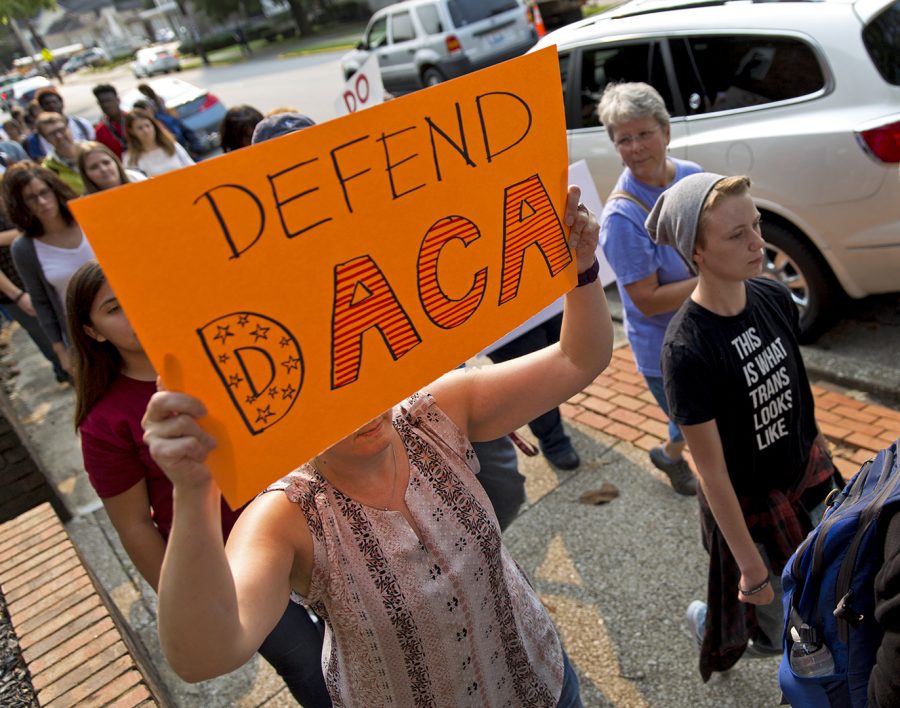How DACA rulings could affect WKU students
November 19, 2019
Immigrant students and refugees who are benefitting from the Deferred Action for Childhood Arrivals program (DACA) could face deportation and/or cancellation of scholarships following President Donald Trump’s administration’s attempt to cancel the protections.
The United States Supreme Court be- gan hearing the administration’s arguments on the cancellation on Nov. 12.
The university does not track the number of students who are in the U.S. as part of the DACA program, which covers U.S. residents who immigrated while under 16 years old.
The Trump administration declared an end to DACA protections in 2017, a decision that was challenged by a federal appeals court and sent to the Supreme Court where proceedings began this week.
Christina Tomás, president of WKU’s Amnesty International branch, is beginning a push for a non-binding act that declares support for the resettlement of refugees in the local community, called the “Refugees Welcome Resolution.”
“Education is a basic human right, and so protecting the education of undocumented migrants is huge,” Tomás said. “I saw the effects of DACA in high school, and [even with the program] it was really challenging for them.”
Tomás said DACA recipients should begin laying plans for what they will do if the act is officially repealed.
“Know what your rights are as an undocumented student and where you can go to seek help,” Tomás said. “You don’t want to be unprepared if the worst does happen.”
The appeals court argued the order did not consider proper caution or planning to account for the rapid change in protections which would impact over 700,000 undocumented workers and students nationwide, according to a 2017 report from Pew Research.
Last week’s Supreme Court hearing showed five conservative judges were willing to uphold the Trump administration’s decision to end the program. “This is a serious decision,” Supreme Court Justice Brett Kavanaugh said
during the hearing. “We all agree with that. [For the Administration] to say in writing ‘even if it’s lawful, I nonetheless am going to exercise my discretion,’ I assume that was a very considered decision.”
It is unlikely that a decision will be made until the spring of 2020, several months before the presidential election. As it stands, it’s unclear whether the decision will have an effect on voters, be it a boost or hindrance to Trump’s reelection momentum.
Since the administration’s attempts to end DACA in 2017, many universities across the country chose to label themselves “sanctuary campuses.” According to the American Association of University Professors, these campuses refuse to cooperate in ICE operations that may involve students and promise to protect the privacy of students attending under DACA protections.
The University Senate voted in favor of making WKU a sanctuary campus in February 2017, but former WKU President Gary Ransdell declined the resolution.
“While I am supportive of the spirit behind the Senate Resolution, I cannot support WKU declaring itself a sanctuary campus,” said Ransdell in his written response to the Senate. “Such a declaration would potentially put WKU at risk with both the state and federal governments and could also endanger financial aid and/or grant funding.”
News reporter Michael J. Collins can be reached at [email protected].













